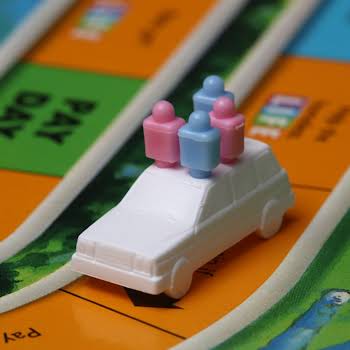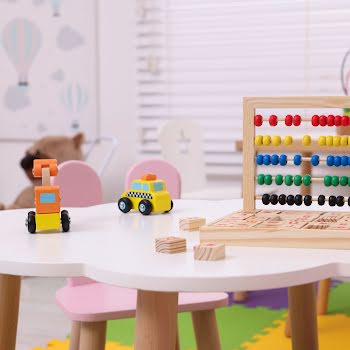
Amanda Cassidy speaks to behavioural therapists and child psychologists about positive and negative reinforcement when it comes to shaping your child’s behaviour – and finds out why many of us are getting it wrong.
Let’s be honest, this parenting lark is a minefield. On the one hand, we are expected to use the Mary Poppins school of raising a child – remaining softly spoken, correcting their behaviour and explaining patiently why, why, why they’ve upset Mummy and why throwing slime on the kitchen ceiling isn’t cool.
Then, on the other, you have the Super Nanny approach; no eye contact, minimum reaction; the because-I-said-so response. While you don’t want to make fear your parenting-based strategy, equally you don’t want your child to escape the consequences of their actions (or, more importantly, to show you up on playdates).
I prefer the let-pick-our-battles method – a strategy that directly correlates to how many hours sleep I’ve had as well as the amount of caffeine I’ve exposed myself to in a day.
The carrot and the stick
John Carter is a child behavioural psychologist from Oxford University. He believes that all parenting should be based around four words when it comes to children’s behaviour – Reward Positive, Ignore Negative.
“The idea of conditioning our behaviour has been largely informed by Pavlov’s studies. (Remember the dogs which he proved could be conditioned to salivate every time they heard a bell because they associated it with the reward of food?).
It is now a commonly accepted fact that by rewarding positive behaviour, you reinforce it. The issue is when it comes to negative behaviour – the carrot and the stick motivation doesn’t always work the same way.”
Researchers now believe that negative reinforcement is often mistaken for punishment and this can actually have negative consequences. I ask London-based psychologist Marcia Hemp for an example. “If your child is, say, clicking his fingers in your ear over and over while you are speaking to another adult.
You might ask him to stop and then when he continues you might turn to him in anger and explain why it is annoying you, that you don’t want him to continue and you are going to punish his behaviour if it continues. This is negative reinforcement – he wanted your attention, he got it. It doesn’t matter that it wasn’t a pleasant interaction for him, but he achieved his goal – to disrupt your conversation so you would focus on him instead.”
So what should we have done in this scenario? What is the Pavlov bell in this situation? The logic is that unless your child is in danger of being hurt or hurting others, you largely try to ignore this behaviour.
Some behavioural therapists suggest carrying a red or yellow card in your pocket, football style. So you only have to hold it up without even having to break your stride. So while positive punishment can be effective, the use of punishment should be weighed against the possible negative effects.
Today’s psychologists and parenting experts favour reinforcement over punishment—they recommend that you catch your child doing something good and reward her for it.

The why?
That might be fine in theory but in practice, we are mere mortal parents who work, have to cook dinner, do homework, bathtime, police the internet, teach manners, referee wrestling matches on the living room rug, and all the rest.
Who has time to stop and remember to not react when your child decides to empty the entire bag of flour on the floor during pancake making?
“I think it is fine to have expectations for our children and it is fine to set limits on their behaviour to keep them on the right track”, explains psychologist Emer Hanaway. “However, the way in which we place our demands on our children is what is key.
No one is saying that you cannot punish your child for their naughty behaviour but often you need to get to the bottom of why they are acting out in a certain way. At this point, you might find that distraction or empathy will allow you to get past some of the situations without having to resort to punishments.
If you do resort to choosing punishment as a behaviour modification with children, make sure your child is being removed from a desirable activity and placed in a less desirable location.”

The length of the time-out is also important – the general rule of thumb is one minute for each year of the children age. Use a timer so you, as the parent, are not seen as the ultimate bad guy. Remain calm, ignore your child during a time-out (offering attention during this time may reinforce misbehaviour) and offer a kind word or hug when they have finished it.
You catch more flies with honey
As with anything, positive reinforcement is less complicated. Try to tune your parenting around turning up the good things so that the negative behaviour isn’t given as much airtime. With that in mind, here are some tips from the experts we spoke to when it comes to polishing your positive reinforcement.
- Ensure the praise is linked to the behaviour you are trying to enforce. Instead of saying ‘good job’ be really specific – “thanks for picking up all your Lego the first time I asked you to.”
- Stanford psychology professor Carol Dweck urges parents to praise the effort instead of praising the child. “It is important to praise children for processes (that was a clever strategy you chose) rather than link the praise to the personality (how clever you are!) Children are more motivated and more likely to take on challenges when they are praised for things like determination and concentration.
- Be sincere. False praise can affect children’s mindset, reduce their interest to take on challenges and send the message that minimum effort is acceptable.
- Don’t always feel like you have to shower them with rewards either – you don’t want to link material reinforcement with every good deed. A reward chart has been shown to be hugely effective and often having straight gold stars in enough of a buzz especially for those under 10. Just make sure that you are consistent.
- Ignoring misbehaviour is difficult – especially at the start when the bad behaviour is likely to increase but staying silent and moving away can help. Just make sure you view this as a long-term plan.
There is, of course, no magic solution to raising children to be good people, but by trying to base the way we react to our children’s behaviour around Reward Positive, Ignore Negative is a good starting point. Identify the behaviour you want to increase. Identify the behaviour you want to suppress and then determine how you are going to reinforce it.
Shaping your child’s behaviour isn’t straightforward but the goal is our very own parenting reward chart. Instead of gold stars, we get well-rounded, kind, honest and secure sons and daughters, with good values, respect for others and themselves.
Now, where’s my bell?






















